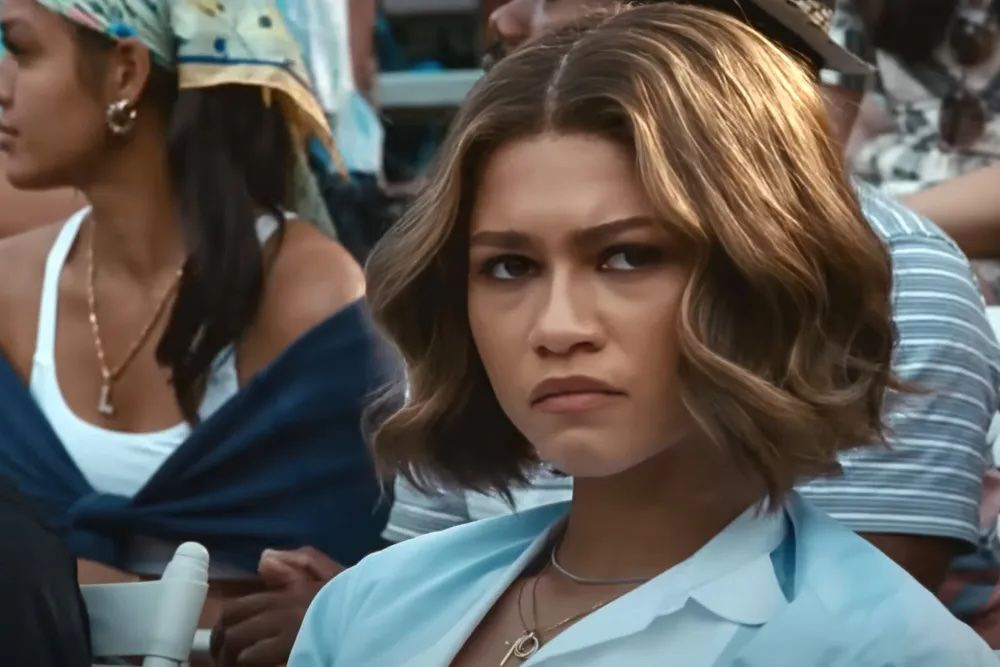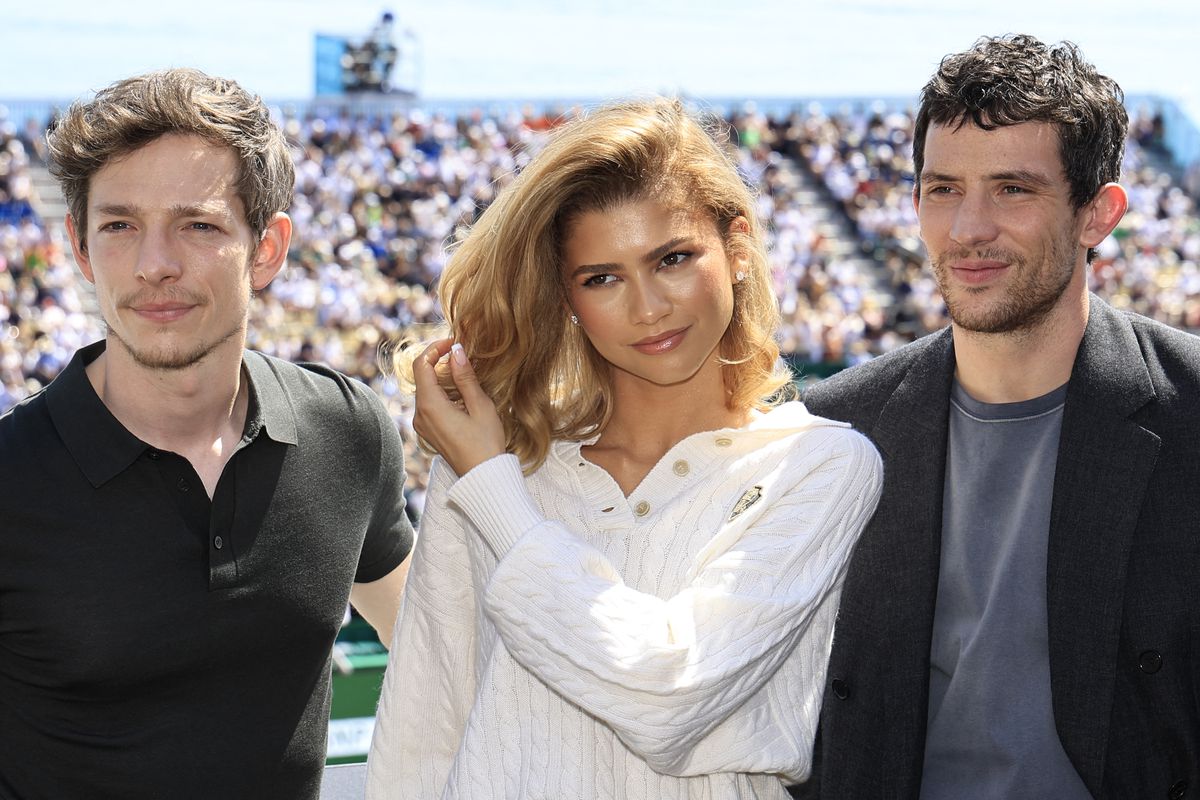May 2, 2024:
Much has recently been made out of polyamory in the media, to the point where the prospect of dating and ostensibly having sex with multiple people who are also attracted to you seems rather unsexy.
Pieces in outlets like the Atlantic, New Yorker, and New York Times (at least twice) have taken stabs at painting portraits of polyams that have resulted in the following takeaways: poly relationships are messy, but they will be the first ones to admit to you that they are messy; poly people believe in a lot of annoying rules, except for annoying rules about monogamy; poly people feel misunderstood but they also have their own acronym-filled language (NRE! Metamour!); polyamory is either popular or not popular at all and said contested popularity, if true, may or may not be the result of a housing crisis.
To be clear, I do not come to bury polyamory. I’m merely pointing out that all this seeming like an exhausting hassle is what happens when something humans do in their relationships becomes a media fixation. Secrets are suddenly made un-secret, and so much is lost in translation and public consumption. No one wants to write a news article that comes from a place of horniness, and with that mentality, the subject becomes a punchline.
Just when you thought that the entire idea of being communally entangled felt too examined, too picked over to ever be sexy again, Luca Guadagnino’s Challengers comes swooping in. Sun-drenched and sweat-soaked, the film demystifies polyamory into something blazingly simple: being in love — physically and emotionally — with two people and being loved back can make a person as happy as they’ve ever been or ever will be.

In tennis terms, “challengers” are a type of B-list tournament, made for players in ranking purgatory — not good enough to be in the main draws of grand slam tournaments and not bad enough to be out of the game entirely. The title also has a double meaning, referencing the very complicated, emotionally difficult, and extremely randy tennis prodigies-turned-pros Tashi Duncan (Zendaya), Art Donaldson (Mike Faist), and Patrick Zweig (Josh O’Connor).

The three are part of an intricate, ball-bashing love triangle, and it’s no accident that every corner is so acutely hot. Zendaya in particular knows how to wear an old money sweater. Faist and O’Connor spend a lot of time arching their backs, whether they’re wearing tiny shorts or not.
Perhaps most important, this is a triangle where, as screenwriter Justin Kuritzkes told NBC, “all sides needed to touch” — and they do.
That’s crystal clear when they first meet, as teens at the junior US Open. Art and Patrick are attracted to Tashi for completely different, at times murky, reasons. Patrick thinks she’s physically beautiful, the hottest girl on earth. Art admires her commanding style of tennis, which makes her the hottest girl on earth to him. When they watch her rip backhands, something clicks for both of them — so much that when she finishes off the point and screams, Patrick grabs Art’s knee. Through her they see each other’s desires and each other in a new, clear way.
The boys invite her to their room, and the great American tennis hope shows up. “I don’t want to be a homewrecker,” Tashi tells them. On the surface, it comes off as a joke. Their closeness and intimacy could be seen as something that’s a little funny for two men who aren’t explicitly gay. But the comment also functions as something truthful. Minutes later, during their three-way kiss, Tashi cocks her head back in a devious, ecstatic grin not because, as one might assume, Art and Patrick are paying her attention — but because Art and Patrick are kissing each other, lost in the moment.
Perhaps Tashi Duncan is telling the truth. She wants to be a homemaker, not a homewrecker! What she really wants is to see them up their game. She tells the boys that whoever wins their face-off match the next day can have her number.
A year later, when Art and Tashi are at Stanford, Art tries to throw a wrench in Tashi and Patrick’s ongoing relationship. He tells Tashi that the vibe he gets from Patrick is that it isn’t that serious. Art tells Tashi that Patrick doesn’t love her, a bit of information that only bothers her so far as she’d hate for someone to think that’s what she wants.

When Patrick arrives at Palo Alto, he pulls Art close — so close you can see the sugar glistening off of his churro (not a euphemism) — and warns him that he’s onto Art’s game. He sees the wedge, and Art trying to finagle a way in. Instead of being angry, Patrick is impressed, happy to see Art go for something that he wants — even if it is his girlfriend. Patrick also wants to see Art up his game.
Their competition turns Tashi on too, as the two talk about Art while they make out and undress. She tells Patrick that Art can beat him — at tennis. She tells him that she watches and knows what he needs to do better in his matches. She tells him she thinks Art is good enough. At one point Patrick asks Tashi to stop talking about his friend and their shared sport, and it’s as though someone blew out the horniness like a candle.
The fight that follows precedes Tashi’s career-ending injury, and in a roundabout way, her eventual marriage to Art, which catapults the pairing to a new level of fame and aspiration.
Not unlike the way Tashi was miserable with Patrick when they weren’t talking about Art, Tashi is miserable being married to Art without Patrick. Though Guadagnino and Kuritzkes wrap the couple in plenty of material success — luxury endorsements, high-end clothes, lush hotels, and six grand slam wins — Art and Tashi are not happy as “the Donaldsons.” They have everything they ever wanted, winning tennis’s biggest tournaments and having the money to do anything, but it can’t spark excitement in their lives.
You can tell how miserable Art and Tashi are because Trent Reznor and Atticus Ross’s pulsating score takes a breath from its thumping pace whenever we’re near the Donaldsons and their dull monogamy. When Art tells Tashi he wants to retire after the Open, the score shifts into an elegiac, string-forward, pleading love song. It’s so soft that it’s almost a little pathetic, not unlike future tennis hall of famer Art.
Yet, when Art and Patrick face off on the court and Tashi watches, Reznor and Ross’s music morphs into something honey-thick, sexier, and more dangerous. The score and their exchanged glances are comically electric; the sexy molly dance music captures the thrill of their three-way relationship.
Those beats fill the last moments in the movie, the final points between Art and Patrick. In that closing set, Patrick changes up his service routine and places the ball in the neck of his racket. This is his secret code to Art that he slept with Tashi, a gesture the two created together as teens without Tashi’s knowledge. Art snaps. He goes into a catatonic, post-marriage state. He lets a couple points pass, and by losing them, plunges Patrick and himself into a tiebreak — a race to seven points, like soccer’s penalty shots or basketball’s overtime but more exciting.

But who’s winning isn’t Guadagnino’s concern. Nor is he particularly interested in articulating exactly what these men are thinking or feeling. There are no distinct labels or boundaries for how these men feel about each other. There’s no neat way to articulate what it means that the woman they’re both interested in is interested in both of them. There’s no ability to explain how much of their mutual want is fueling this erotic thrill. In this fantasy, there’s no need to talk things out for the sake of respectability or to make an audience feel comfortable or understand. All that exists in this moment is an indescribable frisson and beguiling respect that you may never get with just one person.
The point that follows is an exhausting, grunting, sweat-stained rally that ends with both of them at the net, Art going up for a smash and Patrick bracing for impact. We don’t see who wins the point because all the camera’s focus is on Tashi, who growls — a carnal howl — in pleasure. The only other time we’ve seen her this happy was when all three of them were together, with all their desires for each other and with each other out in the open. And they’ve found that again, finally.